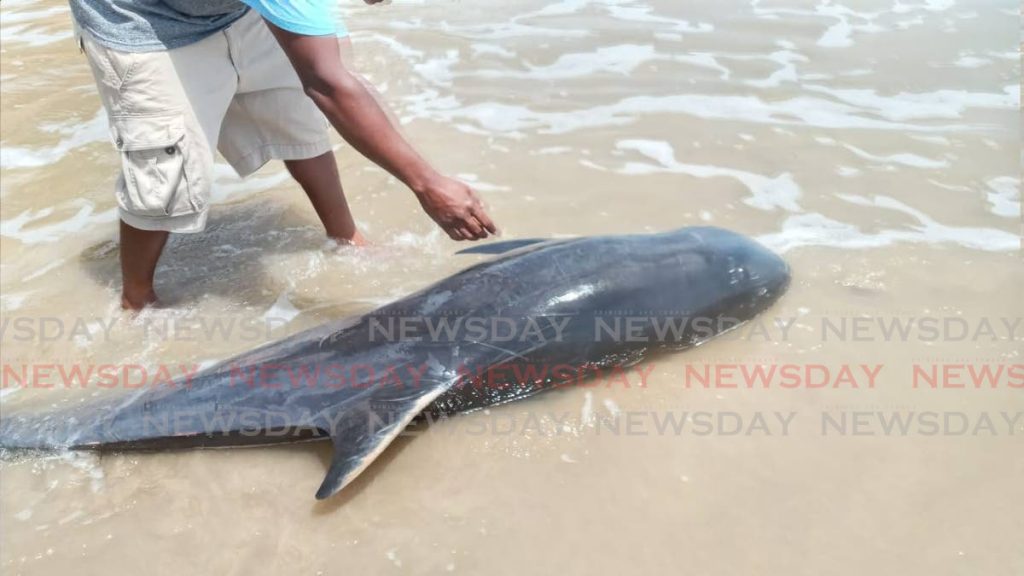Group advises caution when handling stranded marine animals

THE TT Marine Mammal Stranding Network (TTMMSN) says the stranded melon-headed whale which beached on Maracas Bay last week died as a result of severe parasitic meningitis, which affected multiple areas of the animal’s brain.
The group provided an update, including the results of the necropsy findings, and said this case again served to highlight the fact that marine mammals that wash ashore, especially those that wash ashore singly, are typically ill and may be harbouring infectious organisms that may have the potential to be detrimental to humans and other animals.
“Significant parasitism was also observed to be associated with the urogenital tract, where numerous large parasitic cysts were found to be attached to the reproductive organs.
“The animal also had multiple stomach ulcers and numerous parasitic nodules of varying sizes throughout the stomach wall. No food was present in the stomach or intestines,” the update said.
The TTMMSN said it received a report from the Environmental Management Authority last Thursday of a distressed melon-headed whale at Maracas Bay.
It said the Wildlife Section of the Forestry Division, Ministry of Agriculture, Land and Fisheries was contacted and clearance was obtained to initiate stranding response.
Several attempts were made to return the animal to deeper water. A team from the TTMMSN, which included certified aquatic veterinarian and clinician in marine mammal medicine at the University of TT Dr Carla Phillips-Savage; Dr Wade Seukeran of Tenderheart Animals Veterinary Clinic and clinical staff of the UWI School of Veterinary medicine, responded to the call for assistance.
In its update, the TTMMSN said it is advised not to push, pull or drag live stranded marine mammals back into the water.
The TTMMSN said by the end of two re-floatation attempts, the animal had been in distress for more than 11 hours and on physical examination, it displayed periodic tremors and there was a foul odour to the expired air on exhalation.
A decision as then taken to euthanise the whale and the carcass was taken to the UWI Veterinary School for necropsy.
“If left at sea, the animal would certainly have drowned, TTMMSN said.
In urging the public not to attempt to return distressed marine animals back into the water without the supervision of the authorities, TTMMSN said, “Though well-meaning, this action often does more harm to the animal than good, as such ill animals are predisposed to drowning. The public is therefore again urged to avoid handling and/or consuming marine mammals that wash ashore, as this may pose a significant public health risk,” the group said.
The group also reminded that marine mammals were protected locally under the Conservation of Wildlife Act of TT and interacting with or handling these animals without a permit is an offense punishable by law.
In the event of a marine mammal stranding, the public is encouraged to contact the Wildlife Section of the Forestry Division (Trinidad: 662-5114, 645-4288; Tobago: 639-2570, 735-4369) and the TTMMSN (735-3530).


Comments
"Group advises caution when handling stranded marine animals"